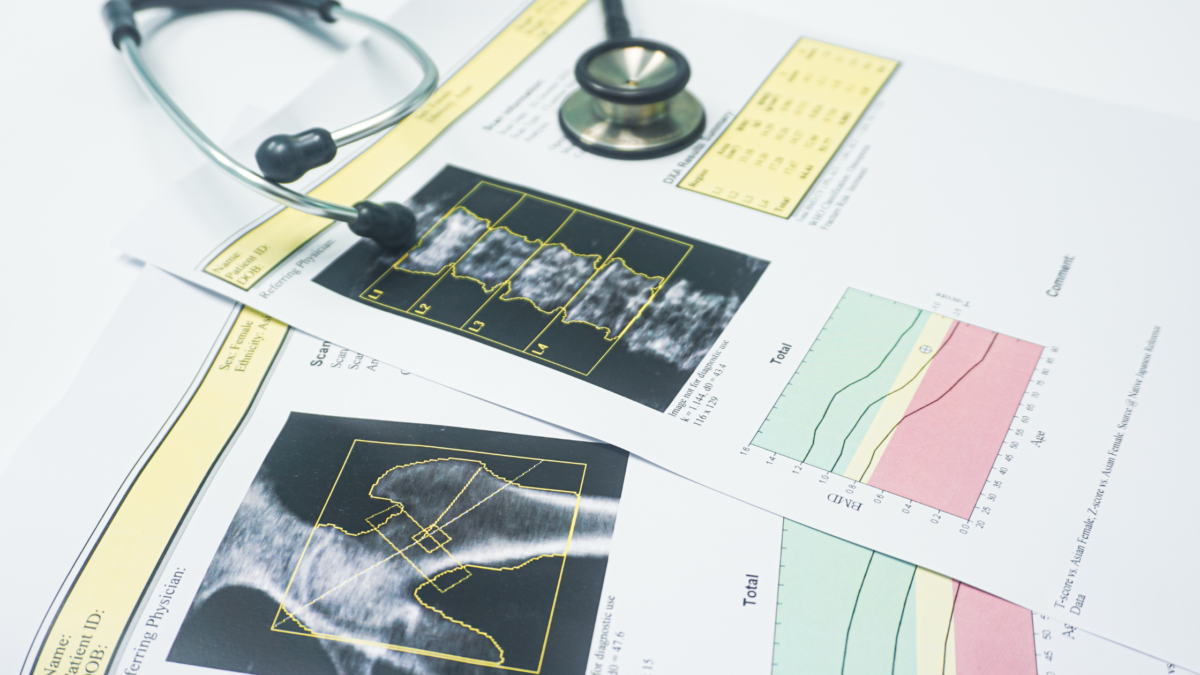


Medically Reviewed By Margaret Etudo. Written By The Vitamins For Woman Team.
Many women think of menopause as a stage of life filled with hot flashes and mood swings. But what truly impacts long-term quality of life is bone density, something far less talked about

Menopause brings many changes to a woman’s body, but one of the most silent yet life-changing is the loss of bone density.
After estrogen levels drop, bone mass can decrease rapidly, increasing the risk of osteoporosis and fractures later in life. For many women, this realization comes too late, often after a fracture or a diagnosis of osteoporosis.
One inspiring story is of a woman in her 70s who credited her ability to undergo a hip resurfacing procedure—a surgery usually reserved for younger men—to having strong bones. She maintained her bone health through long-term hormone replacement therapy (HRT) and by staying moderately active. Her experience shows how bone health today can determine our independence tomorrow.
Many doctors still recommend a bone density scan (DEXA) at 65, yet research shows that bone loss often accelerates much earlier. Requesting a scan at 50 can help detect issues while they are still reversible.
A study published in Endocrine Reviews highlights that estrogen deficiency after menopause is a key driver of bone loss and that interventions such as HRT can prevent or slow osteoporosis progression (Raisz, 2002).
It is important to advocate for yourself. If your doctor is hesitant, emphasize that knowing your baseline bone density earlier allows you to make informed choices about lifestyle, diet, supplements, and potential therapies.
Multiple studies confirm that HRT is one of the most effective ways to prevent bone loss in postmenopausal women. A review in Climacteric found that HRT not only preserves bone mass but also reduces the risk of osteoporotic fractures (Gambacciani & Levancini, 2014).
However, HRT is not the only tool. Maintaining a healthy weight, engaging in weight-bearing exercise, and ensuring adequate calcium and vitamin D intake are all essential for bone strength.
Along with medical interventions, certain supplements can support bone density as part of a well-rounded plan. Calcium and vitamin D are foundational for bone health, with vitamin D improving calcium absorption. Magnesium also supports bone structure by aiding in vitamin D metabolism.
Collagen peptides have shown promise in supporting bone strength by providing amino acids that help maintain bone matrix. If you are looking for a reliable option, a high-quality calcium and vitamin D supplement or collagen peptides powder can be practical additions to your daily routine.
Always consult your healthcare provider before starting new supplements, especially if you are considering HRT or have existing medical conditions.
Another important piece of the puzzle is pelvic floor health. Some women focus heavily on exercise to strengthen bones but overlook pelvic health, which can weaken due to estrogen loss.
High-impact exercise without proper pelvic support can lead to prolapse. A pelvic floor therapist can help ensure the right muscles are engaged to prevent complications.
Women who choose to combine strategies—whether that’s HRT, supplements, regular exercise, or pelvic health therapy—are often the ones staying active and independent well into their later years.
Stories of women in their 80s still driving, shopping, and enjoying fitness activities are inspiring reminders that bone health pays off.
Bone density is more than just a medical number. It’s the foundation for living life fully and independently as we age. Taking steps now, like talking to your doctor about HRT, requesting an earlier bone scan, staying active, and adding the right supplements, can protect your future self.
At Vitamins For Woman, we believe in informed, proactive choices. We encourage you to discuss all options with your healthcare provider to find what’s best for you. Taking care of your bones today can mean a future filled with freedom and vitality.
Gambacciani, M., & Levancini, M. (2014). Hormone replacement therapy and prevention of chronic conditions. Climacteric, 17(Suppl 1), 8–13. https://doi.org/10.3109/13697137.2014.944977
Raisz, L. G. (2002). Pathogenesis of osteoporosis: Concepts, conflicts, and prospects. Endocrine Reviews, 23(4), 529–535. https://doi.org/10.1210/edrv.23.4.0463
World Health Organization. (2013). Prevention and management of osteoporosis. Retrieved from http://ndl.ethernet.edu.et/bitstream/123456789/74374/1/33.pdf.pdf#page=54

medically reviewed by margaret etudo, BPharm. written by the vitamins for woman team.